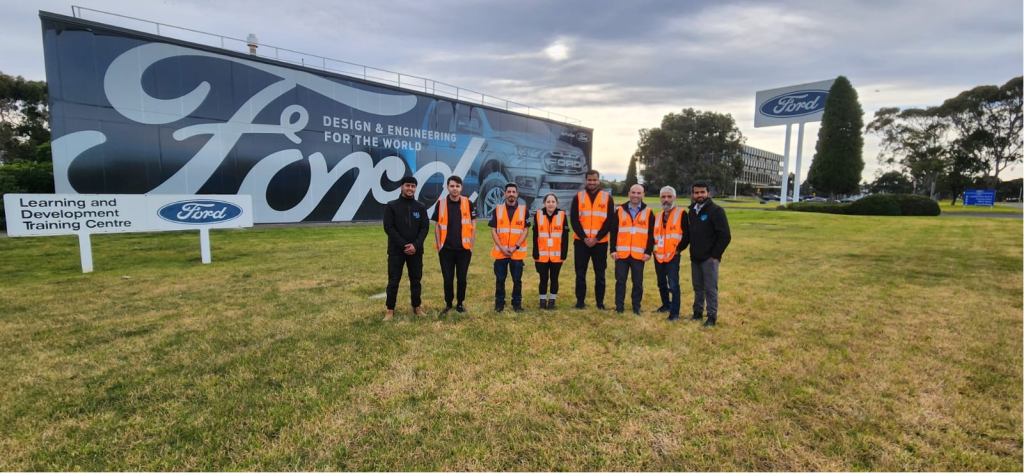The industrial and manufacturing sectors are vital to the economy, responsible for producing essential goods and materials across various industries. However, with valuable assets and infrastructure at stake, these sectors are frequent targets for physical security threats such as theft, vandalism, trespassing, and industrial espionage. Security in these environments must evolve to protect both personnel and property from these risks.
This article explores the growing importance of robust physical security in the industrial and manufacturing sectors, focusing on the need for advanced surveillance, access control, and proactive threat detection to safeguard operations.
The Importance of Comprehensive Physical Security
The industrial and manufacturing sectors deal with sensitive materials, expensive machinery, and high-value goods, making them attractive targets for theft and sabotage. Historically, security in these industries has focused on basic perimeter defences, like fencing and basic CCTV systems. However, as threats become more sophisticated, facilities must adopt more comprehensive security strategies.
Physical security challenges include:
- Theft of raw materials or finished products: Copper, aluminium, and other valuable materials are frequent targets for theft in industrial settings. Stolen materials can lead to significant financial losses and production delays.
- Vandalism: Unprotected facilities are prone to damage that can disrupt operations, increase repair costs, and affect business continuity.
- Trespassing: Unmonitored entry points can allow unauthorised individuals to gain access, posing risks to both safety and productivity.
- Workplace safety risks: In some cases, unauthorised access to hazardous areas can lead to accidents, potentially causing injury or damage to equipment.
A robust physical security system tailored to industrial environments helps mitigate these risks, protecting both assets and personnel.
Advanced Security Solutions: Enhancing Protection
To effectively safeguard industrial and manufacturing operations, companies must invest in modern, integrated security solutions. These systems go beyond traditional security measures and provide a higher level of protection for facilities. Some key components include:
- Video Surveillance with Analytics: Modern CCTV systems, equipped with advanced analytics, can detect unusual behaviour, loitering, or unauthorised access in real time. These systems can trigger immediate alerts, allowing security teams to respond quickly and mitigate potential threats.
- Access Control Systems: Preventing unauthorised entry is crucial in protecting high-risk areas like storage units, production floors, and administrative offices. Access control systems—such as keycards, biometric readers, or even mobile access—ensure that only authorised personnel can enter restricted zones.
- Mobile Patrols: For large facilities, mobile security patrols are an effective way to monitor expansive areas, including hard-to-see zones that fixed cameras or sensors may miss. Security personnel on mobile patrol can perform routine inspections, check perimeter fencing, and ensure that gates and entry points are secure.
- Perimeter Detection Systems: Perimeter security plays a vital role in keeping intruders out. Motion sensors, infrared beams, or even drone surveillance systems can detect and deter unauthorised entry, providing early warning to security personnel before a potential breach escalates.
- Employee and Contractor Escort Services: Some manufacturing environments have high-value assets or sensitive processes that require secure movement of employees, contractors, or materials. Security companies often provide escort services to ensure that staff and contractors move safely within and between sites, minimising the risk of theft, accidents, or unauthorised access.
The Role of Security Personnel: A Visible Deterrent
In addition to technology, trained security officers remain a critical part of any security plan for industrial and manufacturing facilities. The presence of on-site security guards acts as a powerful deterrent to would-be thieves and vandals. Security personnel are trained to detect suspicious activity, patrol vulnerable areas, and respond quickly to emergencies.
Security guards in industrial settings may also be tasked with performing:
- Routine inspections: Checking that gates, doors, and windows are locked, and that no signs of forced entry are present.
- Monitoring high-risk zones: Guards can be stationed at key entry points or near valuable equipment to ensure only authorised personnel have access.
- Emergency response: In the event of a security breach, fire, or other emergencies, security personnel are often the first to respond, ensuring that the situation is handled quickly and efficiently.
Training and Safety Protocols for Security Personnel
In the industrial and manufacturing sectors, safety is paramount. Security officers in these environments must not only manage potential security threats but also be aware of the specific hazards associated with the industry, such as machinery or hazardous materials.
Training programs for security personnel should cover:
- Workplace safety regulations: Guards need to understand the unique risks associated with industrial work environments, including the use of heavy machinery or hazardous chemicals.
- Emergency response protocols: Whether responding to a security breach, fire, or medical emergency, security personnel must know how to act swiftly and appropriately to minimise harm and ensure the safety of employees.
- Collaboration with safety teams: Security teams often work closely with facility managers and health and safety officers to ensure compliance with regulations and implement security measures that protect both employees and assets.
The Benefits of Outsourcing Security to a Professional Provider
Many industrial and manufacturing companies are opting to outsource their security needs to professional security firms. Outsourcing allows businesses to leverage the expertise and resources of dedicated security providers, who are equipped with the latest technology and trained personnel.
Key benefits of outsourcing security include:
- Expertise: Professional security companies have specialised knowledge and experience in dealing with the unique security challenges of industrial settings.
- Cost-efficiency: Hiring a security company can be more cost-effective than managing an in-house security team, as it allows businesses to scale services based on specific needs.
- Comprehensive services: Outsourcing to a professional provider ensures access to a full range of security services, including surveillance, mobile patrols, alarm monitoring, and event management.
Conclusion: Securing the Future of Industrial and Manufacturing
The industrial and manufacturing sectors face a range of physical security threats that can disrupt operations, cause financial loss, and compromise safety. As these industries evolve, so too must their approach to security.
By implementing advanced surveillance systems, access control measures, and highly trained security personnel, industrial and manufacturing companies can stay ahead of potential threats and protect their valuable assets and operations. Outsourcing security to a professional provider like MA Services Group allows businesses to benefit from comprehensive, state-of-the-art security solutions tailored to their specific needs.
In an ever-changing landscape of security threats, the importance of robust physical security in the industrial and manufacturing sectors cannot be overstated. Protecting facilities, personnel, and assets is critical for the long-term success and sustainability of these industries.


